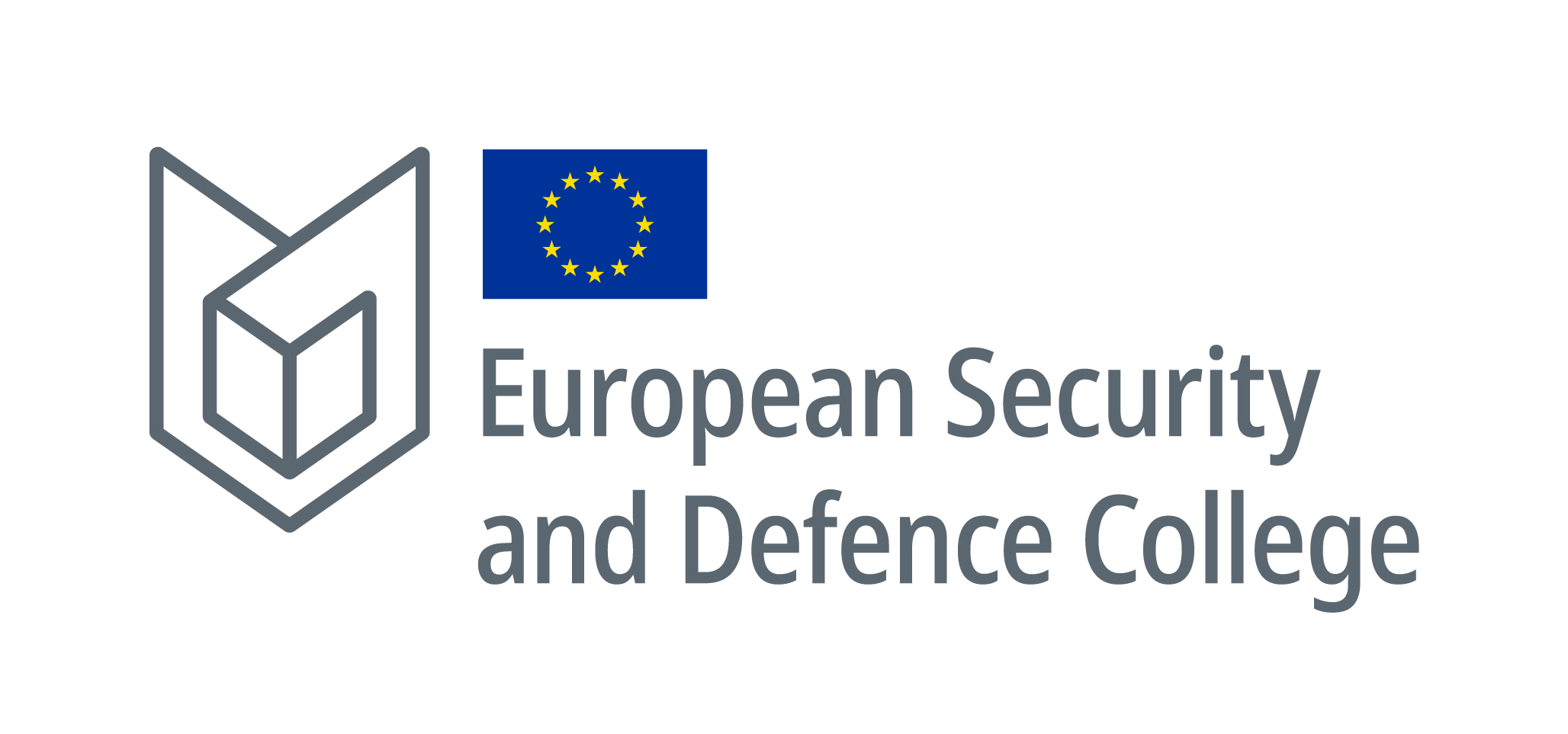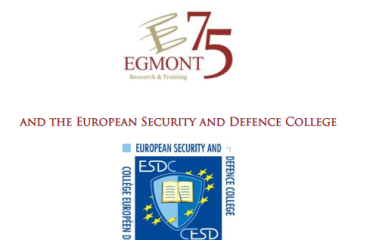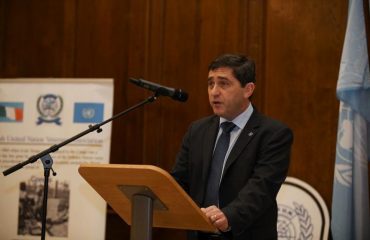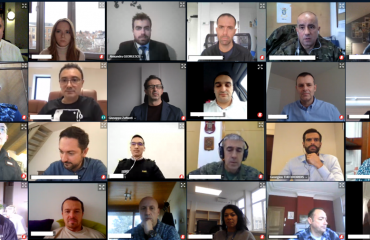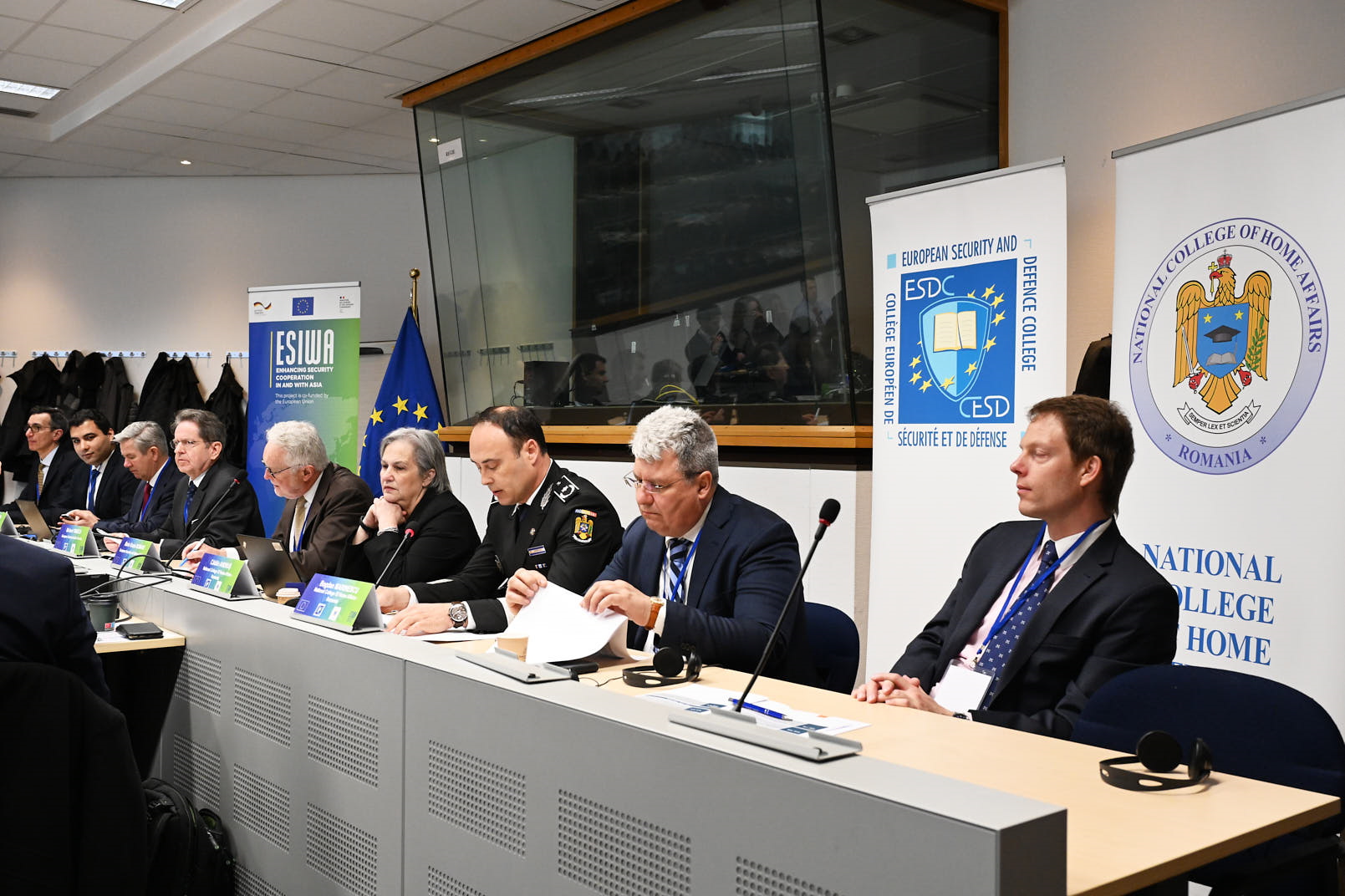 This in-person event brought together more than 65 officials from EU Member States, relevant EU institutions and agencies, and representatives from the following Indo-Pacific countries – India, Indonesia, Japan, the Republic of Korea, Malaysia, the Maldives, the Philippines, Sri Lanka, Timor-Leste, Thailand and Vietnam. The participants were all mid-ranking to senior officials working in state institutions/agencies in the area of maritime security. The event was an excellent platform for exchanging experience and sharing ideas on tackling common regional and global maritime security challenges, especially during the daily Q&A sessions and social events.
This in-person event brought together more than 65 officials from EU Member States, relevant EU institutions and agencies, and representatives from the following Indo-Pacific countries – India, Indonesia, Japan, the Republic of Korea, Malaysia, the Maldives, the Philippines, Sri Lanka, Timor-Leste, Thailand and Vietnam. The participants were all mid-ranking to senior officials working in state institutions/agencies in the area of maritime security. The event was an excellent platform for exchanging experience and sharing ideas on tackling common regional and global maritime security challenges, especially during the daily Q&A sessions and social events.
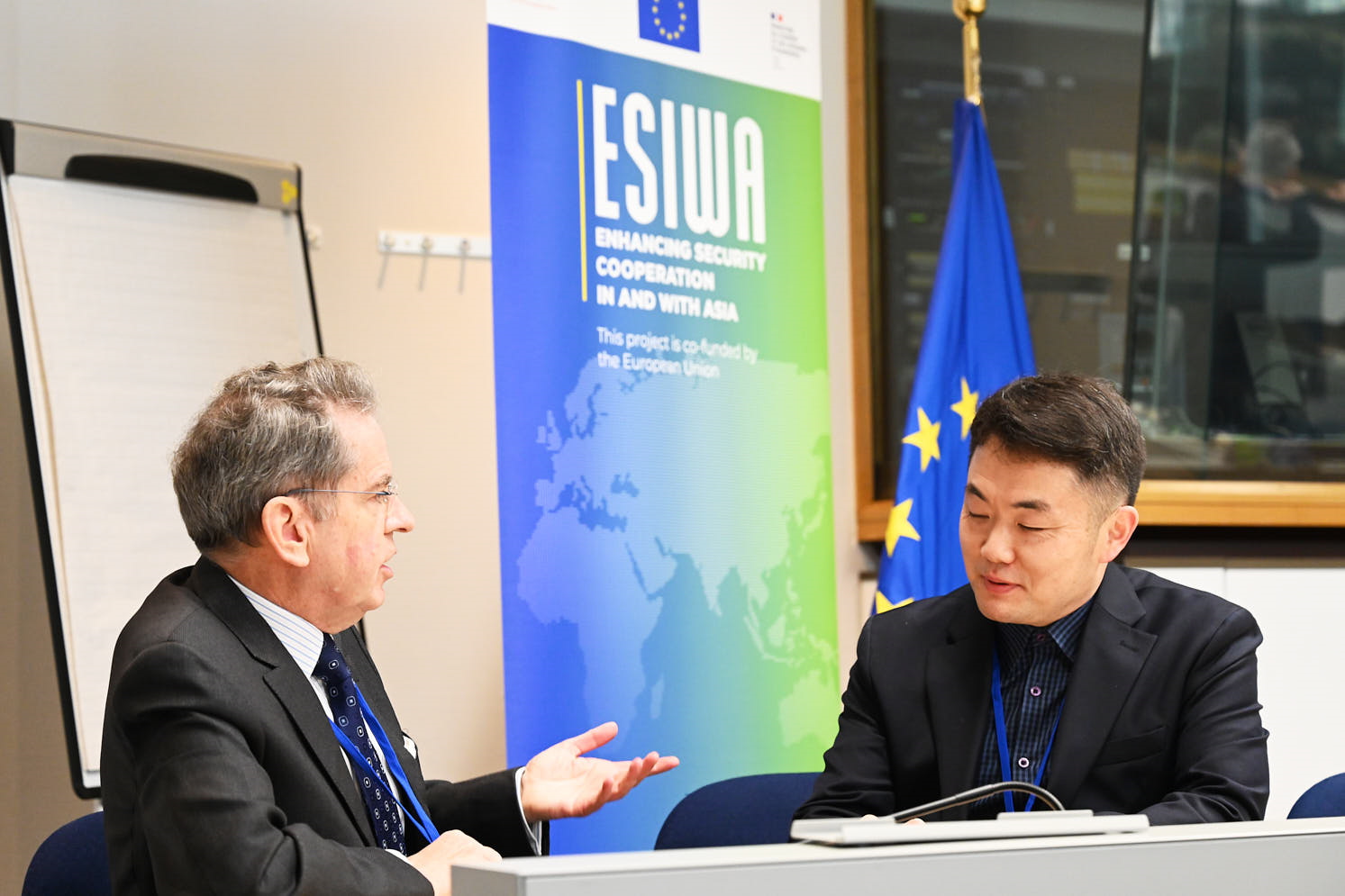 In their opening remarks, Pierre Mayadoun, Co-Director of the ESIWA project, and Cătălin Andruș, Police Quaestor and Course Director of the Romanian National College of Home Affairs (CNAI), briefly presented the activities of ESIWA and CNAI respectively, and highlighted the need for the EU to act as a maritime security provider in its neighbourhood and beyond. Hence, engaging with Indo-Pacific partner countries and promoting dialogues and synergies continues to be important in order to face the maritime security challenges together in a very complex, connected and contested world.
The EU Special Envoy for the Indo-Pacific, Richard Tibbels, stressed that the Indo-Pacific is the beating heart of the global economy and global trade. The EU and partner countries from the Indo-Pacific region must therefore enhance their mutual economic resilience and strengthen their engagement to collectively face common topical security challenges. Joint exercises within the EU’s naval operations, coordinated deployments, the use of jointly-developed satellite systems, and communication tools to enhance maritime awareness were all identified as examples of this.
In their opening remarks, Pierre Mayadoun, Co-Director of the ESIWA project, and Cătălin Andruș, Police Quaestor and Course Director of the Romanian National College of Home Affairs (CNAI), briefly presented the activities of ESIWA and CNAI respectively, and highlighted the need for the EU to act as a maritime security provider in its neighbourhood and beyond. Hence, engaging with Indo-Pacific partner countries and promoting dialogues and synergies continues to be important in order to face the maritime security challenges together in a very complex, connected and contested world.
The EU Special Envoy for the Indo-Pacific, Richard Tibbels, stressed that the Indo-Pacific is the beating heart of the global economy and global trade. The EU and partner countries from the Indo-Pacific region must therefore enhance their mutual economic resilience and strengthen their engagement to collectively face common topical security challenges. Joint exercises within the EU’s naval operations, coordinated deployments, the use of jointly-developed satellite systems, and communication tools to enhance maritime awareness were all identified as examples of this.
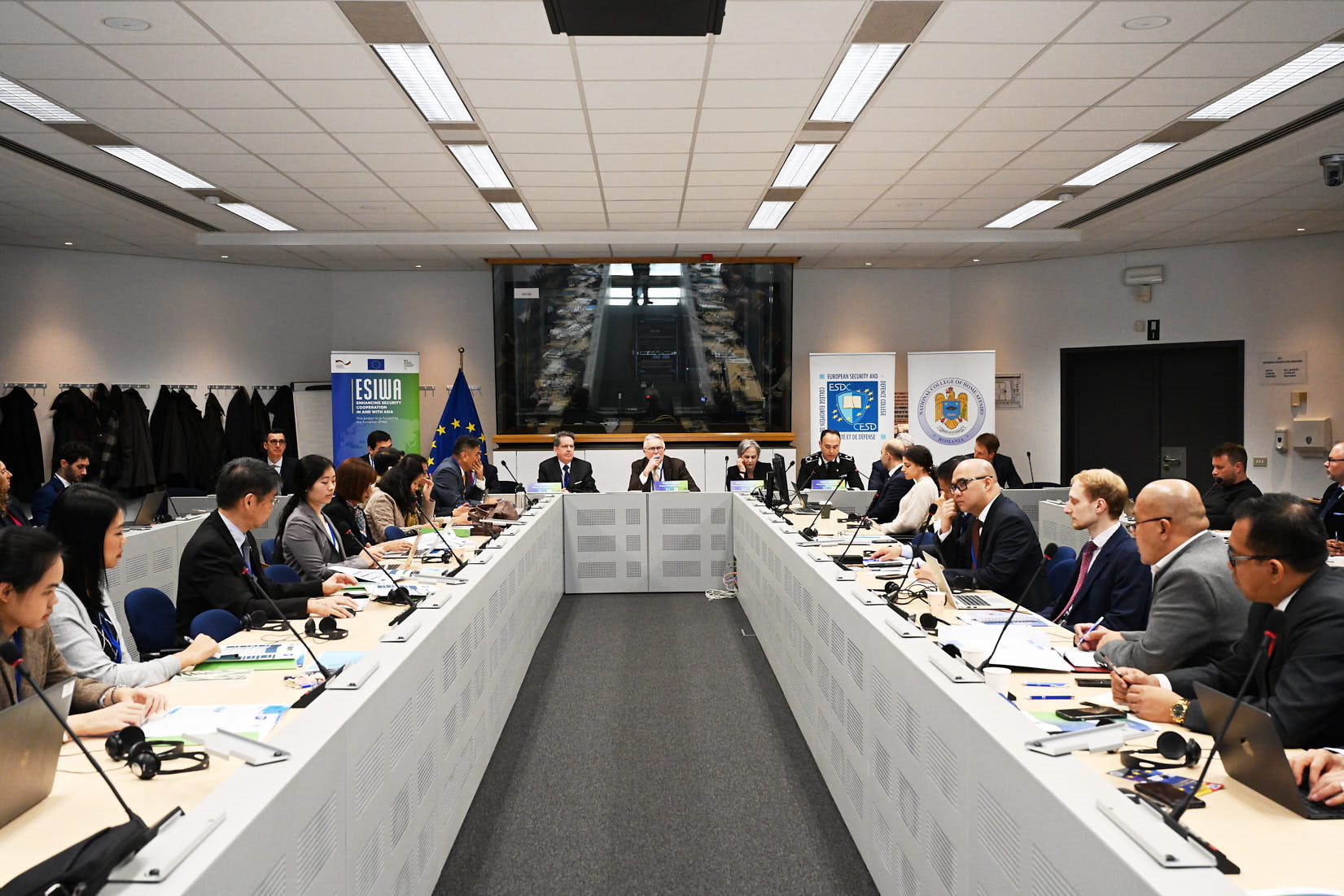 During the day, different speakers from the European Commission and the European External Action Services (EEAS) delivered enlightening presentations on emerging maritime threats and avenues for cooperation between the EU and the Indo-Pacific partner countries. Furthermore, a NATO official presented NATO’s view on maritime security, and stressed that the Indo-Pacific in terms of the need for deterrence.
Day two focused on the EU’s strategic approach in the maritime domain. EEAS officials gave speeches on how the EU applies the concept of Coordinated Maritime Presence (CMP) in the Indian Ocean and on the EU’s newly released Maritime Security Strategy. A representative of the European Defence Agency presented some EU projects and programmes in the maritime security field and explained how partnerships with the Indo-Pacific countries could be developed. Moreover, two researchers provide invaluable input with academic perspectives on the importance of protecting critical energy infrastructures in the maritime domain and on maritime dispute settlement in the framework of the United Nations Convention on the Law of the Sea (UNCLOS).
On day three, the focus was on the operational engagement between the EU and the Indo-Pacific, with presentations on the recent activities of the EU naval operation ATALANTA and on the information-sharing tools of the Critical Maritime Routes Indian Ocean (CRIMARIO) project. The day finished off with closing remarks delivered by Gunnar Wiegand, Managing Director for the Asia-Pacific at the EEAS, and by Holger Osterrieder, Head of the European Security and Defence College, who both emphasised the relevance of such an event in terms of supporting security dialogues and promoting greater convergence between partners.
During the day, different speakers from the European Commission and the European External Action Services (EEAS) delivered enlightening presentations on emerging maritime threats and avenues for cooperation between the EU and the Indo-Pacific partner countries. Furthermore, a NATO official presented NATO’s view on maritime security, and stressed that the Indo-Pacific in terms of the need for deterrence.
Day two focused on the EU’s strategic approach in the maritime domain. EEAS officials gave speeches on how the EU applies the concept of Coordinated Maritime Presence (CMP) in the Indian Ocean and on the EU’s newly released Maritime Security Strategy. A representative of the European Defence Agency presented some EU projects and programmes in the maritime security field and explained how partnerships with the Indo-Pacific countries could be developed. Moreover, two researchers provide invaluable input with academic perspectives on the importance of protecting critical energy infrastructures in the maritime domain and on maritime dispute settlement in the framework of the United Nations Convention on the Law of the Sea (UNCLOS).
On day three, the focus was on the operational engagement between the EU and the Indo-Pacific, with presentations on the recent activities of the EU naval operation ATALANTA and on the information-sharing tools of the Critical Maritime Routes Indian Ocean (CRIMARIO) project. The day finished off with closing remarks delivered by Gunnar Wiegand, Managing Director for the Asia-Pacific at the EEAS, and by Holger Osterrieder, Head of the European Security and Defence College, who both emphasised the relevance of such an event in terms of supporting security dialogues and promoting greater convergence between partners.
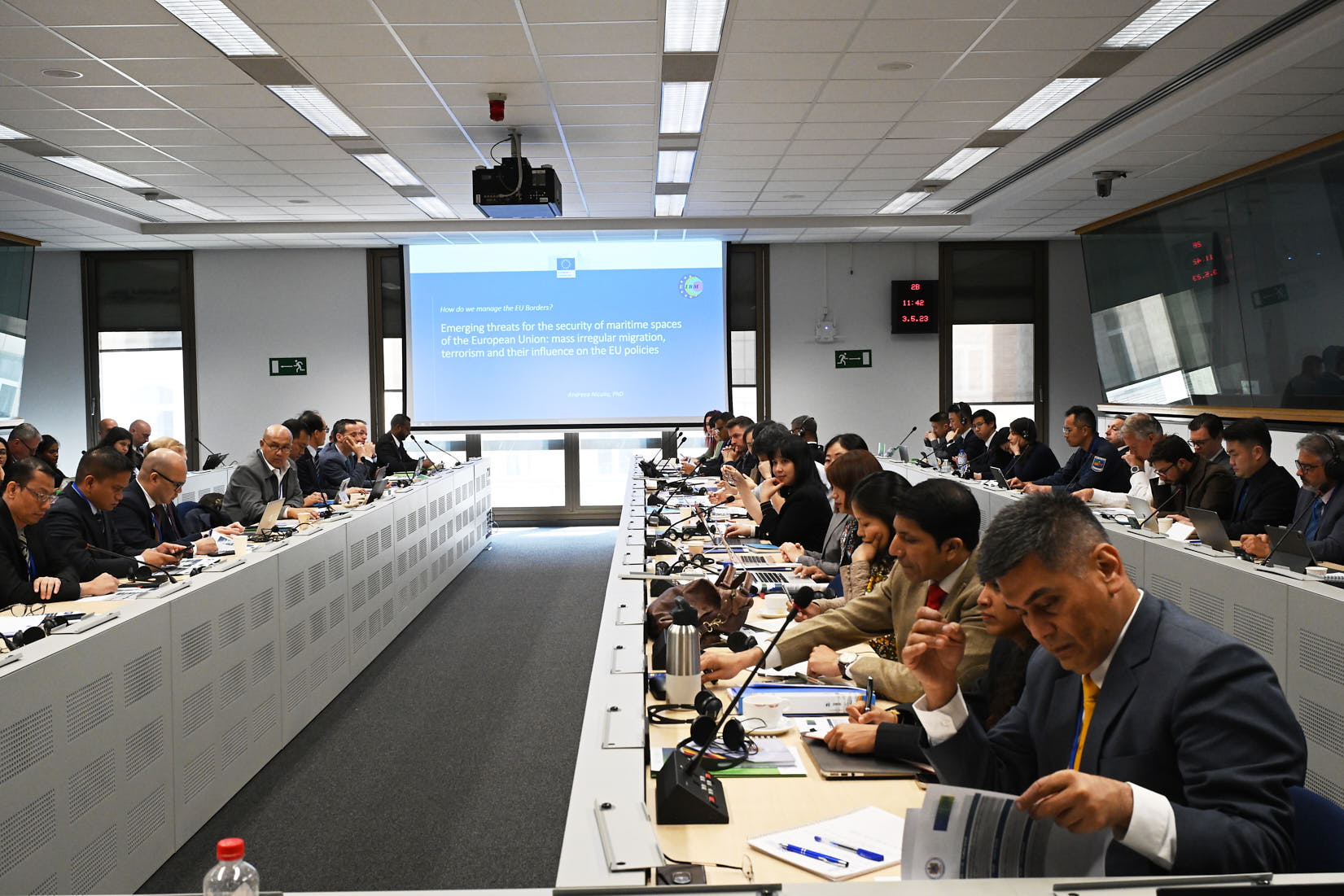 The ESDC would like to thank all the participants and the speakers for their dedication to the course. Special thanks go to the EU delegations in the selected Indo-Pacific countries, to the Romanian National College of Home Affairs and to the EU project ‘Enhancing Security Cooperation in and with Asia (ESIWA)’ for their support and collaboration during the organisation of the seminar.
The ESDC would like to thank all the participants and the speakers for their dedication to the course. Special thanks go to the EU delegations in the selected Indo-Pacific countries, to the Romanian National College of Home Affairs and to the EU project ‘Enhancing Security Cooperation in and with Asia (ESIWA)’ for their support and collaboration during the organisation of the seminar.
